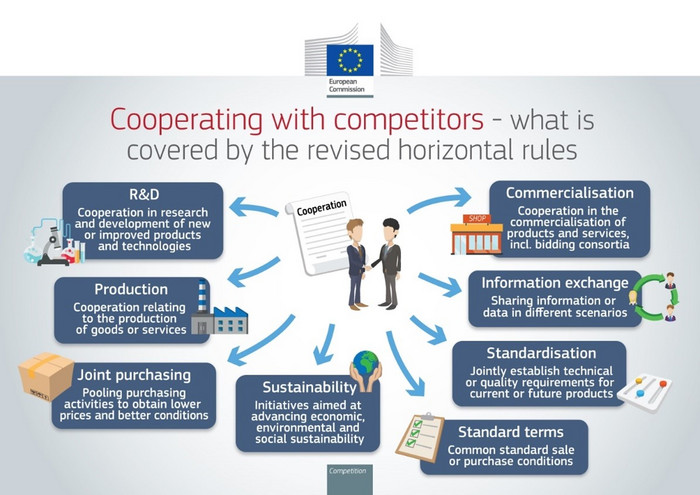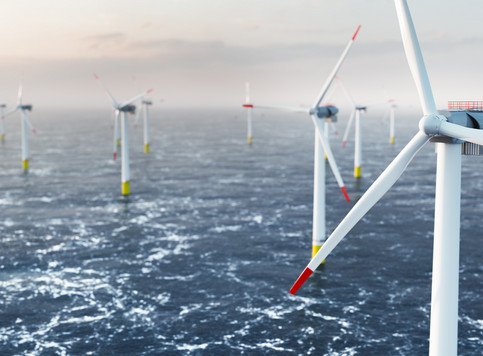Competition law with your coffee – June 2023
In this newsletter, the competition lawyers at DLA Piper Norway provide insight into the latest and most relevant decisions from the EU, national courts, and competition authorities. The newsletter is intended to provide a short and easy-to-understand summary of current news and trends within the world of competition law, preferably as light reading material alongside your coffee. Happy reading!

On June 5 2023, the Supreme Court ruled on the legality of the way in which the class action lawsuit against Sector and Verisure is financed. The class action lawsuit was filed by the Alarm Customer Association in the wake of the Norwegian Competition Authority's decision concerning the residential alarm companies for having collaborated illegally in home sales. The association filed a class action lawsuit following the opt-out option, which means customers automatically become part of the lawsuit unless they opt out. The lawsuit was supposed to be financed by a foreign fund, which would cover the costs of the financing and the agreed return through deductions from any compensation awarded to the group members. The Supreme Court found that the current rules for group proceedings in the Dispute Act do not provide for such a funding arrangement in withdrawal lawsuits, and therefore the Alarm Customer Association cannot be designated as a group representative for the lawsuit.
Since early 2021, the European Commission has been working to revise the EU's horizontal block exemption regulation and the associated horizontal guidelines for cooperation between competitors. The new regulation will enter into force on July 1 2023, and changes that will make it easier for companies to collaborate in areas of R&D and specialization agreements can be expected. In addition, more guidance is provided on the assessment of price signaling, tender cooperation, purchasing cooperation and information exchange. Among other things, the guidelines provide for a simpler assessment of cooperation in tenders and the demarcation for when companies are regarded as potential competitors, compared with the approach traditionally taken by the Competition Authority in Norway. The Commission has also clarified in which cases it will be acceptable for competitors to collaborate on sustainability initiatives, for example in situations with standard agreements where a group of companies join forces to boycott plastic, fossil fuels or similar. Sustainability initiatives will also be a topic in the new guidelines on exclusionary abuse under article 102 TFEU.

Picture from ec.europa.eu (Antitrust (europa.eu)
Big news for EU competition law enthusiasts is that the European Commission has recently announced that Google may have to sell part of its lucrative AdTech business to address the anti-competitive concerns in the market. This was stated on 14 June 2023 in the Commission's "Statement of Objections". The Commission’s perception is that Google has abused its dominant position to favor its own online display advertising technology services at the expense of competing providers of ad technology services, advertisers, and online publishers. The preliminary conclusion from the Commission is that behavioral remedies are unlikely to alleviate the risk of competitive harm, and the only solution is then considered to be for Google to sell off part of its business. Google now has a few months' deadline to comment on and respond to the Commission's assumptions, concerns, and preliminary conclusions.
The Norwegian Competition Authority announced in May 2023 that the Authority is intervening against ØB Group's acquisition of Betongvare. The Authority's concern is that the acquisition will lead to reduced local competition for customers on the Folgefonn peninsula, who thus risk higher prices for ready-mix concrete. The Norwegian Competition Authority thus continues its trend of giving priority to investigating narrower markets and impose notifications for transactions that are not subject to the obligation to notify in principle. Examples that can be mentioned from the past year are Skion's acquisition of Enwa (sale of goods and services to the swimming pool industry) and Axess' acquisition of the bankruptcy estate of Auto Transport Services (preparation services and transportation of new vehicles). Both transactions were cleared in phase two. This practice is reminiscent of what we have seen historically by the Authority, cf. the well-known Plantasjen/Oddernes case from 2012.
The General Directorate (DG) has recently published a long-awaited questionnaire related to the implementation of the Foreign Subsidies Regulation (FSR), (EU) 2022/2560. The EU Commission apparently – and on the verge of sensational – seems to believe that financial support from the EEA/EFTA countries (Iceland, Liechtenstein and Norway) is to be regarded as "foreign" aid and must be considered when assessing the obligation to notify in the Regulation. From a Norwegian point of view, this arrangement appears to be somewhat artificial, since the EEA Agreement contains state aid rules that reflect the EU state aid rules and are enforced in the same way. There is an ongoing debate in academia about how the questionnaire and the Commission should be interpreted on this point, and the question has been raised as to whether any of the exemption provisions in the regulation could apply to Norway.

In the wake of Brexit, cooperation and the degree of consensus in merger control between the European Commission and the UK competition authorities have been put to the test. The latest example is the European Commission's decision in the Microsoft/Activision case, where the Commission cleared Microsoft's acquisition of Activision Blizzard subject to conditions. However, the UK's Competition and Markets Authority (CMA) decided to intervene in the acquisition in April this year. The same happened last year when the CMA chose to intervene in mergers between Cargotec and Konecranes, while the companies received clearance in the EU a month before. EU Commissioner Margrethe Vestager has recently stated that consideration must be given to whether the current cooperation agreement between the CMA and the European Commission is sufficient to ensure that authorities have the opportunity to share information in such cases. However, it is not given that this will resolve the situation and the uncertainty caused by the supervisory authorities' different approaches in different transactions.
The EFTA Surveillance Authority has been active for Norway in recent months, announcing the opening of two different investigations for potential breaches of the state aid rules and EEA competition rules. The first is against the Norwegian state for allegedly providing illegal state aid to Vy-gruppen AS and its subsidiaries, and the other is against Elkjøp for possible anti-competitive conduct in violation of Articles 53 and/or 54 of the EEA Agreement (corresponding to sections 101 and 102 of the TFEU).
Recent and much talked about news of the day concerns Danske Bank's announcement of their exit from the market of private customers in Norway. The Norwegian Competition Authority has been active in the Norwegian press, and recently stated that they are monitoring and will make a thorough assessment of a possible acquisition. The Authority itself stated that the experience from the DNB/Sbanken case has given them insight which will prove valuable when assessing this case.
Click here to receive our competition law newsletter directly in your inbox.






